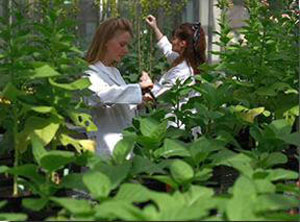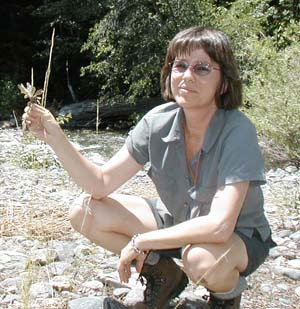Botanist
Tasks & duties

Botanists may do some or all of the following:
-
study plants and their environment
-
investigate the origin, development and structure of plants
-
identify, describe and classify plants
-
study the effect of such things as sunlight, soil and other organisms on plants
-
investigate plant diseases
-
investigate indigenous uses of plants
-
use science to discover and test new knowledge about plants
-
develop new plant types
-
work on biodiversity conservation programmes
-
write reports and articles, and make presentations
-
teach botany
Specialisations
Botanists may work in:
-
horticulture
-
agriculture
-
conservation
-
forestry
-
biotechnology
-
resource management
Skills & knowledge

Botanists need to have:
-
knowledge of plant biology and diseases
-
knowledge of genetics and molecular biology
-
understanding of geology and soil types
-
knowledge of ecology and chemistry
-
research skills
-
skill in analysing and interpreting research results and other information
-
practical skills for performing experiments and operating scientific equipment
-
problem-solving skills
-
planning and organisational skills
-
communication skills
-
writing skills, for writing reports and for publications
-
maths and computer skills
Knowledge of German and/or French is useful, as a lot of scientific articles on botany are written in these languages.
Entry requirements
To become a botanist, you usually need a Master's degree in botany or in a related area such as biology. A PhD is generally required for research-based positions.
For research-based work at the technician level, a Bachelor’s degree in a related science subject is the minimum entry requirement.
For work that involves applying botanical knowledge, such as policy work or working as a biosecurity officer, a Bachelor’s degree is generally the minimum entry requirement.
Secondary education
A tertiary entrance qualification is required to enter tertiary training.
Useful subjects include Bursary or NCEA equivalent biology, chemistry, geography and maths. A foreign language such as French or German may also be useful, as a lot of botanical journals are published in these languages.
Training on the job
Many skills are gained on the job. Botanists also have regular opportunities to take part in conferences and workshops to learn about new technology and research.
Some botany training courses include sessions aimed at improving skills in communication, report writing, public speaking and using databases.
Related courses
Biochemistry and Cell Biology
Botany
Soil Science
For more information, please refer to Career Services.
Document Actions
